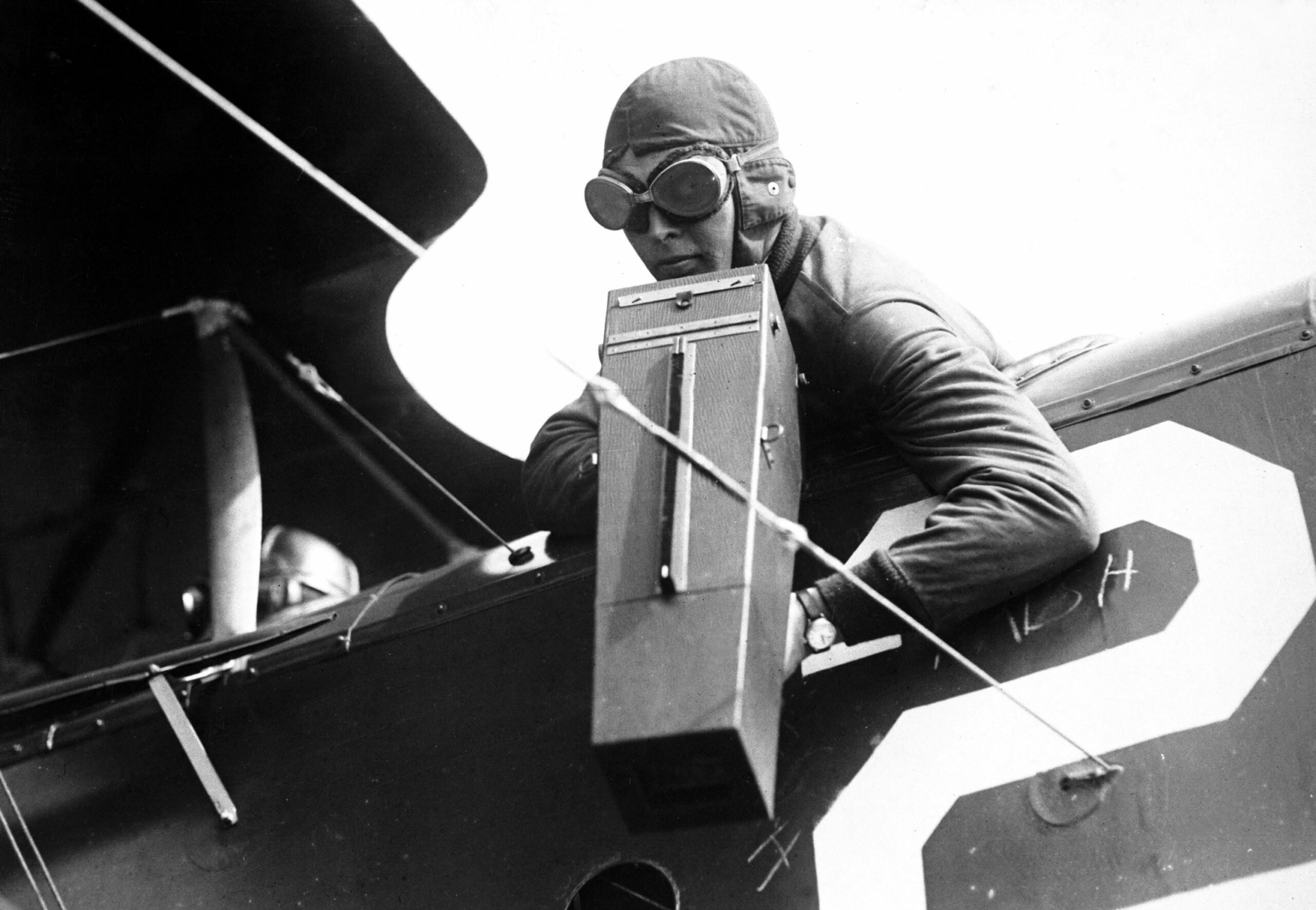How American Intelligence Was Born in the Trenches of World War I
Published: 6 March 2024
By Derek Leebaert
via the SpyTalk website

Aeial reconissance
Aerial reconnaissance, like aerial bombing, was a hit and miss thing in World War I
The Great War forced the US to create a modern spying and analysis apparatus
In 1920, a perceptive British correspondent titled a book he’d just written about the conflict that had so recently laid waste to much of Europe, The First World War. And indeed, there was plenty of evidence that the stones had been laid for yet another global conflagration. Germany, carved up by the victorious allies in the Treaty of Versailles, was descending into political and economic chaos under the humiliating defeat and impending weight of war reparations. In Italy, Benito Mussolini’s fascists were terrorizing towns and beating up labor leaders. In Russia, the Bolsheviks were mopping up Western-supported forces in its civil war, even as Ukraine declared its independence. In Paris, meanwhile, the League of Nations gathered for its inaugural session—without the participation of the U.S., the world’s foremost industrial nation, thereby virtually dooming it to irrelevance.
Americans, repulsed by the meaningless horrors of trench warfare, wanted to rid themselves of Europe’s endless internecine barbarism. Barrelling into the 1930s, the so-called “waves of the future”—Soviet Communism, Italian Fascism and German National Socialism—seemed only a prelude to something worse on the continent. In Japan, the wreckage of Europe’s colonial powers gave the emperor’s militarists the confidence that they had a free hand in the Far East, starting with China.
 This sweep of history is addressed superbly by historian Mark Stout in World War I and the Foundation of American Intelligence. He offers not only a profound work of scholarship that illuminates the origins of today’s U.S. intelligence community, but he puts this larger canvas to good use to reveal much that’s generally unknown about America’s rise to global primacy.
This sweep of history is addressed superbly by historian Mark Stout in World War I and the Foundation of American Intelligence. He offers not only a profound work of scholarship that illuminates the origins of today’s U.S. intelligence community, but he puts this larger canvas to good use to reveal much that’s generally unknown about America’s rise to global primacy.
Step by step, readers grasp the growing intelligence capabilities and professionalism that arose from what was all too briefly called “The Great War.” He not only breaks new ground, but relates the early history of U.S. intelligence to the present lives of both ordinary Americans and, specifically, to those who chose careers within the intelligence community.
The details that Stout assembles for some chapters, such as on aviation and electronic intelligence, might overwhelm the general reader, as can the number of minor characters who pop up and disappear. But his story is nonetheless propulsive, and for those of us who enjoy American history, especially U.S. military and espionage history, World War I and the Foundations of American Intelligence is riveting.
Many readers will discern similarities between the first two decades of the twentieth century and those of the twenty-first, following Al Qaeda’s attacks on the World Trade Centers and Pentagon. The Wilson administration’s search for German saboteurs in 1917, for example, led to the widespread violation of civil liberties, much like, almost a century later, the George W. Bush administration rationalized its illegal intercepts of U.S. person’s communications and Black Site torture in its desperate efforts to prevent further terrorist attacks. Likewise from 1914 through 1918, the departments of State, War, Navy, and Justice all had divisions that, in one way or another, were involved with intelligence, yet no central body had the authority to coordinate them. Similar lapses prevented U.S. intelligence in 2001 to prevent the 9/11 attacks.
As a result of post-9/11 reforms that included the creation of the Directorate of National Intelligence, information-sharing relationships exist today among the principal spying and analysis services of the CIA, NSA and FBI as well as state and local entities. That said, cooperation across organizational boundaries remains difficult, according to numerous reports. Today’s IC has to prioritize resources, as did their Great War predecessors. Debates continue over how time, money, and talent is to be divided between needs for analysis, for stealing secrets, and for political warfare.
Altogether, Stout has written a meticulous account that reaches as far and wide as the impact of WWI.
Read the entire article on the SpyTalk website.
External Web Site Notice: This page contains information directly presented from an external source. The terms and conditions of this page may not be the same as those of this website. Click here to read the full disclaimer notice for external web sites. Thank you.



